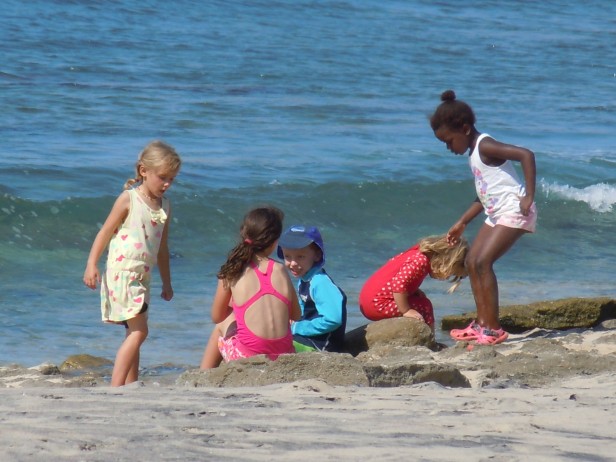
Jane Elliott (American schoolteacher and Anti-racism activist) says “People who are racist are not stupid, they’re ignorant. And the answer to ignorance is education.”
I personally believe that how we raise our children and what our attitude is to a variety of things is fashioned by our parents and our upbringing, whether intentional or not. Unless we intentionally seek to change, we usually end up repeating the beliefs and patterns of our parents. My challenge to you, as a parent today, is to look at what your attitude and way of living are like in relation to racism.
You may well respond, like me, that you are anti-racist. I hold fast to that belief. Yet, when I pondered on this, there were some glaringly obvious facts that showed otherwise. It would probably be more accurate to say that I am anti-racist in a passive form.
Why do I say this?
Let me take you for a tour of my home.
- When my children were younger, were there any black dolls in amongst my children’s dolls? No
- Any indigenous finger puppets? No
- Any indigenous storybooks? Maybe one or two.
- Indigenous DVD’s? A couple but not really watched.
- Do we have Indigenous music playing in our home? No
- Any Indigenous artwork in our home? No
- Have we taught our children Australian History from a non-white perspective? Sort-of.
- In our close circle of friends, how many are from other cultures, or indigenous communities? Yes, to overseas culture but no to Australian Indigenous People.
- In relation to work colleagues, how many are indigenous Australian? None
- How often do we, as a family, do any local indigenous cultural activities? Hardly ever.
- Would it be fair to say that we, as a family, are surrounded by a ‘white’ bubble? Yes.
- How often do we raise the topic and chat about indigenous affairs? Not often.
- Do we actively seek out relationships with Indigenous Australians? No.
We have as a family, gone on a ‘mission’ trip to Broken Hill and spent a week interacting with indigenous Australians there. We learnt a lot, shared a lot, and tried not to have the belief that we were going to ‘help’ and had stuff to ‘offer’ them.
I approached a friend of ours whose family fostered an indigenous Australian child for some suggestions on how, as a family, we could start to talk about and explore ways to raise our awareness of, and interaction with, indigenous Australians. His response was:
“The only practical thing I can think of is to seek out relationships with Indigenous Australians. I guess that’s what I did, in praying for and seeking out the opportunity that ended up becoming our Broken Hill trip. And then finding that our friendships and family grew temporarily as a result. In Melbourne, different to Adelaide or Sydney, it’s unlikely that we will bump into an Indigenous person. Rather, attending “Survival Day” festivities in Belgrave on Jan 26 or other opportunities will be needed to seek out friendships. As I did, I bumped into so many other learnings that exposed and then taught, my ignorance about things. Eg. why am I not alarmed when I get a headache? Because I’ve been passed down knowledge from my parents who were passed down knowledge from theirs – use some logic to eliminate simple reasons why it might be there. 1. Drink some water. Oh, that was it! What a privilege to come from a family with parents and grandparents and great-grandparents who raised their children in a family unit.”
I would love to hear any further ideas and suggestions on how families can start talking about and exploring ways of raising their own awareness of indigenous issues here in Australia.